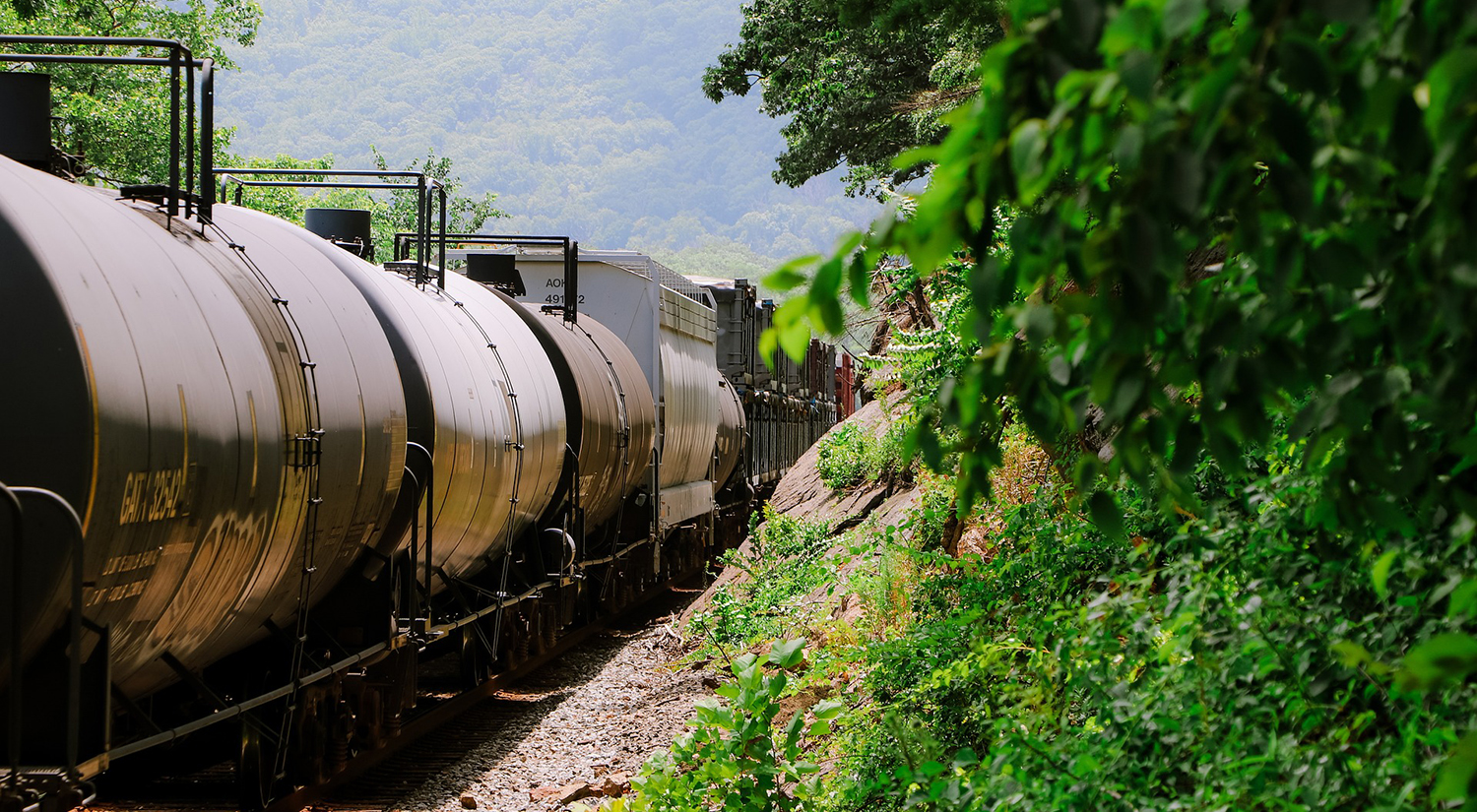Permit Denied For Dangerous LNG Rail Transport Route

Clean Air Council and residents along a proposed route to transport liquefied natural gas (LNG) had a huge win this spring after a federal agency denied a Special Permit to transport LNG by rail from northcentral PA to South Jersey for an LNG export project in New Jersey. The Council was heavily involved in a coalition that mobilized communities to fight the proposed rail route and collected more than 100,000 signatures on a petition to PHMSA opposing the permit.
LNG is natural gas that is chilled to -260°F, so it can be transported long distances by truck or ship. In this state, it’s highly flammable, explosive when exposed to air, and can burn the skin if it makes contact. The Pipeline and Hazardous Materials Safety Administration (PHMSA), which is a federal agency under the Department of Transportation that manages pipelines and the transport of hazardous materials including LNG, issued its denial of the Special Permit on April 24, 2023.
In December 2019, PHMSA had issued a rare special permit to specifically allow the transport of LNG by rail from a liquefaction plant in Wyalusing, PA to an export terminal in Gibbstown, NJ by a company called New Energy Solutions. The 100 car trains would have been a specific type of tank car that has not been tested for transporting LNG. The proposed transport of LNG over a 200-mile route was unusual, as many liquefaction plants are located close to LNG export terminals. The plan was for this LNG to be shipped overseas, primarily for the manufacturing of plastic products. The project had been continually delayed since the permit was issued. The original permit was never used, so New Energy Solutions filed a renewal request right after the permit expired.
The proposed rail route for this project would have exposed almost 2 million people to the risks of LNG, many of whom are low-income, Black and Brown, and already overburdened by environmental injustice. The trains would have cut through hundreds of communities, including densely populated cities like Wilkes Barre, Reading, Allentown, and Philadelphia in Pennsylvania and Camden and other municipalities in New Jersey. The special permit allowed the transport of LNG using rail cars that were not designed for LNG transport, adding to the risk of a catastrophic incident. The export of LNG drives up the domestic cost of gas. Pennsylvanians, and all Americans rapidly need to decarbonize and move towards electric energy. The denial of this permit is a small step in that direction.
To learn more about EPA’s proposed rule, contact Advocacy Coordinator Susan Volz at svolz@cleanair.org

